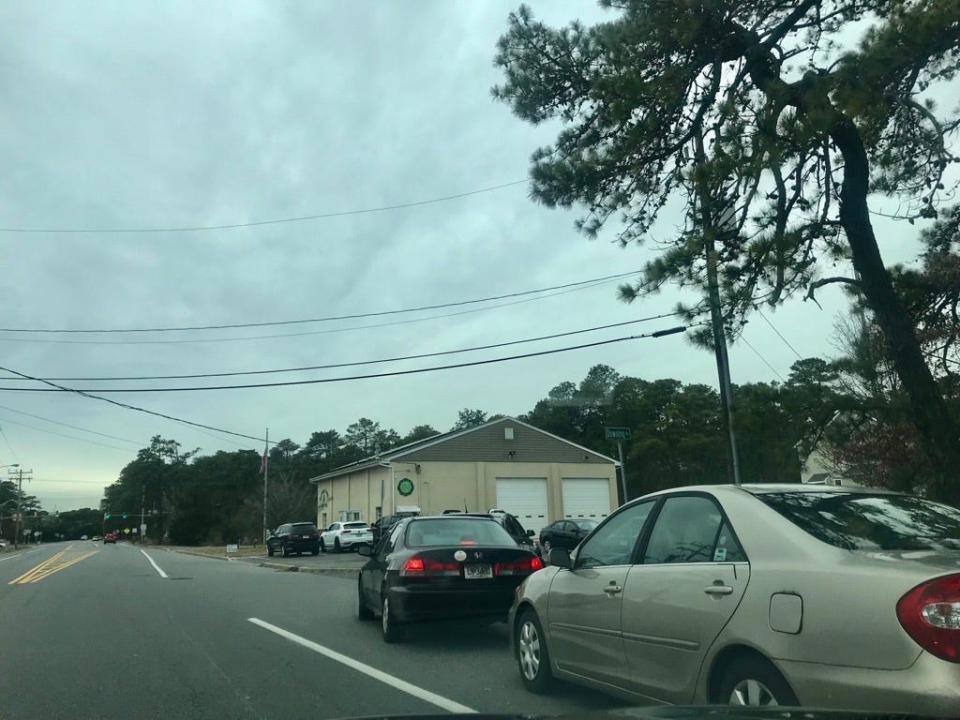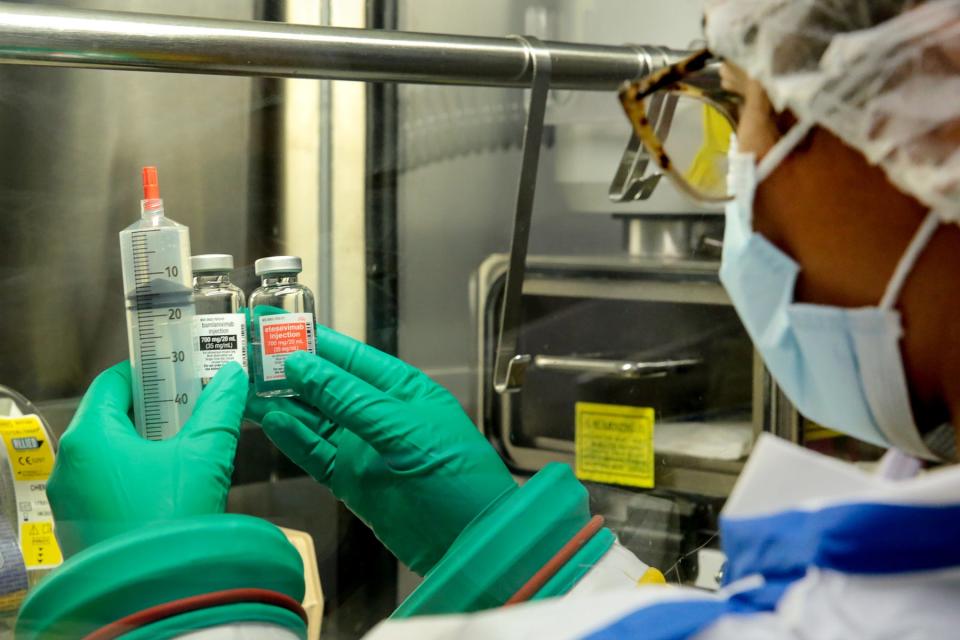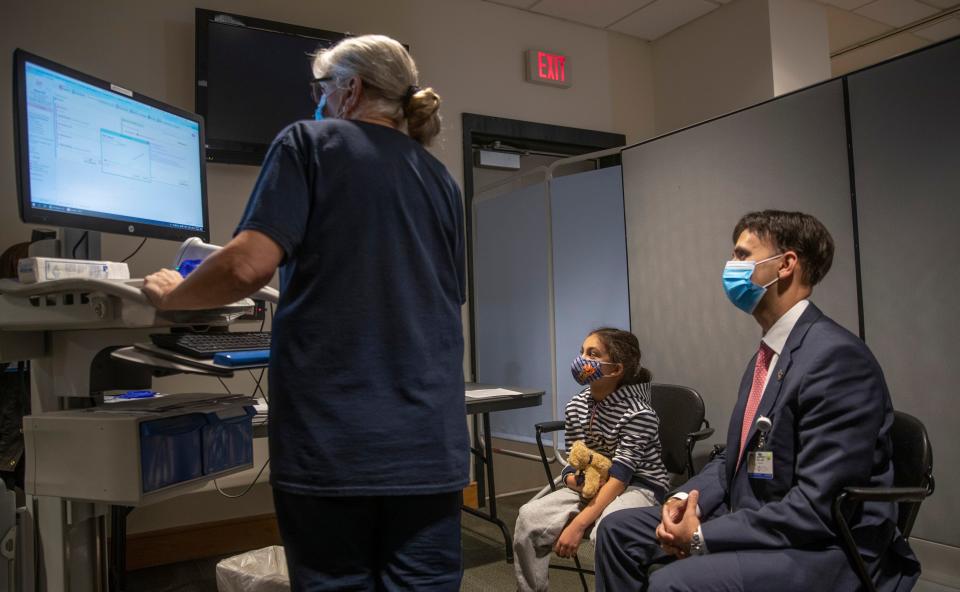NJ hospitals cut back on monoclonal antibodies treatments for COVID as omicron spreads
New Jersey hospitals have begun to limit their use of monoclonal antibody therapies to treat COVID-19 because of a shortage of supplies and questions over how well they treat the omicron variant.
Hospital officials say they are using their scarce drug for patients who are most at risk of developing serious complications from the virus.
"At this time, the criteria for recipients is now restricted to individuals who are 65 years of age or older or are immunocompromised and have cancer or have recently received an organ transplant," RWJBarnabas Health, a West Orange-based health system, said in a statement.
Monoclonal antibodies have been shown to reduce hospitalization and emergency room visits for patients with mild to moderate symptoms of COVID-19 within 10 days of their onset.
The tight supply comes as New Jersey battles the fast-spreading omicron variant that is disrupting the holidays, from forcing flight cancellations at Newark Liberty International Airport to sending people to wait in long lines to get tested.
Health experts, however, are hopeful that omicron is less severe than previous strains and the state's relatively high vaccination rate can help hospitals avoid the worst-case scenario.

"We're seeing that the area pharmacies are out of stock for rapid tests, so people are going to the only game in town, which is to urgent care centers, to community health centers," said Christopher Rinn, chief executive officer of the Visiting Nurse Association of Central Jersey's Community Health Centers.
"There is a huge uptick of interest in testing and boosters," he said.
Health providers were hopeful that unvaccinated patients who contracted the virus could be treated with monoclonal antibodies, drugs that are derived from people whose immune systems successfully fought off COVID-19 and are given through an infusion.
MORE: NJ hospitalizations rise on heels of COVID spike
The U.S. Food and Drug Administration approved monoclonal antibodies from three manufacturers — Regeneron; Eli Lilly; and GlaxoSmithKline, which makes the drug along with Vir Biotechnology.
But the omicron variant is heavily mutated, giving it the ability to evade some defenses. As it spreads rapidly, researchers have found that only GlaxoSmithKline's drug, called sotrovimab, is effective. And the FDA last week paused distribution of the antibodies to which omicron could be resistant.

The FDA last week resumed shipments of sotrovimab. And it said it plans to distribute another 300,000 doses nationwide in January.
A spokeswoman for GlaxoSmithKline told USA TODAY last week that the company is "working with urgency and exploring options to expand our supply capacity."
MORE: A year after COVID vaccine, Shore health workers are weary facing new variant
Some New Jersey hospitals stopped monoclonal antibody treatment altogether. Among them: Holy Name Medical Center in Teaneck, which said on its website that it found some of those treatments were not effective for patients who become infected with omicron.
Other hospitals are using caution.

"While greater supply of sotrovimab is anticipated in January, current allocations remain limited across the country and are being prioritized for individuals who are most at risk with certain preexisting conditions," Kerry McKean Kelly, a spokeswoman for the New Jersey Hospital Association, a trade group, said.
With the treatment in short supply, health experts encouraged people to get vaccinated, noting three doses of the Pfizer or Moderna shots are effectively preventing the worst cases of omicron.
Dr. Stanley Weiss, an epidemiologist and professor at the Rutgers New Jersey Medical School, said it is difficult to compare the severity of different strains, given that the virus now is hitting different age groups that have different levels of inoculation.
But his message regarding omicron remains the same as other variants: Given a choice, try to avoid it.
"The omicron is so highly infectious that risks right now are extremely high, even in small gatherings," Weiss said.
USA TODAY contributed to this story.
Michael L. Diamond is a business reporter who has been writing about the New Jersey economy and health care industry for more than 20 years. He can be reached at mdiamond@gannettnj.com.
This article originally appeared on Asbury Park Press: Monoclonal antibody treatment in NJ: Hospitals cut amid omicron

